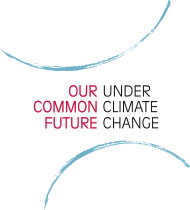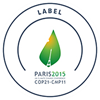The rapid changes occurring in the Arctic Region clearly influence global climate and have large scale consequences. These changes present societal challenges, but also economic opportunities. European and Canadian research communities are amongst the most active and productive in the Arctic region. Therefore, the EU and Canada could strongly benefit from a high degree of coordination and an integrated cooperation with all relevant actors. This notably includes a close and constant dialogue between scientists, policymakers, business and industry leaders, and local communities.
With this in mind, ERA-CAN + through its activities, in particular those aimed at identifying challenges and topics for targeted opportunities in areas of mutual interest, could provide significant inputs to European, Canadian, bilateral and even international bodies for the design of realistic and feasible trans-Atlantic polar research programs.
Synergy and exchanges between actors of various origins and scientific fields being a precious source of new ideas, the ERA-CAN+ consortium organizes a roundtable on the "Impact of climate change on Arctic indigenous people's health and wellness´┐Ż.
FORMAT
This EU-Canada event will be held at CNRS headquarters (Campus G´┐Żrard M´┐Żgie, Paris Michel-Ange) on July 6th, 2015 back to back to the "Our common future under climate change´┐Ż Conference. It will gather about 20 European and Canadian researchers to discuss common challenges and opportunities for collaboration, as well as the next actions to be undertaken in the 3 following topics of mutual interest:
- Impacts of climate change on health
- Environmental contaminants
- Mental wellness / suicide prevention
PROGRAMME
The program of the roundtable will include:
- Presentation of the state of the art in Canada and the EU in ´┐ŻArctic, Health and Wellness´┐Ż
- Break out / brainstorming sessions: sub-group discussions on the 3 identified topics
- Wrap-up session: moderators for each small group will report back to all participants and share the outcomes, followed by a general discussion on what the next steps should be.
OUTCOMES
It is expected that this event will enable the EU and Canadian research communities to determine new areas of collaboration, as well as outline potential joint endeavours to address the targeted challenges. It will also provide inputs for EU-Canada S&T; policy dialogue, and allow these parties to align priorities, and identify opportunities, instruments and funding modalities to be mobilized by the different stakeholders




